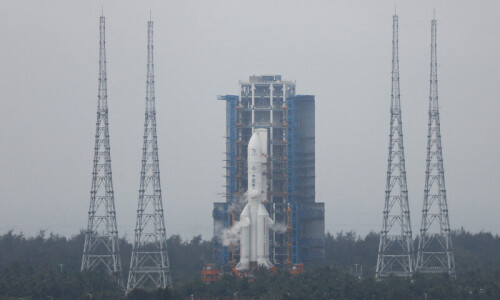India was buzzing with speculation on Tuesday over rumoured plans to scrap the official usage of the country’s English name after a state-issued invite sent to world leaders referred to it as “Bharat”.
Prime Minister Narendra Modi’s government has worked to remove lingering symbols of British rule from India’s urban landscape, political institutions and history books, but its next move could be the biggest such action yet.
Modi himself typically refers to India as “Bharat”, a word dating back to ancient Hindu scriptures written in Sanskrit, and one of two official names for the country under its constitution.
Members of his Hindu-nationalist ruling party have previously campaigned against using the country’s better-known moniker, India, which has its roots in Western antiquity and was imposed during the British conquest.
This weekend India hosts the G20 summit of world leaders, capped with a state dinner that invitation cards said would be hosted by the “President of Bharat”.
The government has called a special session of parliament for later in the month while remaining tight-lipped about its legislative agenda.
But broadcaster News18 said unnamed government sources had told it that Bharatiya Janata Party lawmakers would put forward a special resolution to give precedence to the name “Bharat”.
Rumours of the plan were enough to spark a mix of opposition lawmakers and enthusiastic support from other quarters.
“I hope the government will not be so foolish as to completely dispense with ‘India’,” Shashi Tharoor of the opposition Congress party said on X, formerly known as Twitter.
“We should continue to use both words rather than relinquish our claim to a name redolent of history, a name that is recognised around the world.”
Former Test cricketer Virender Sehwag said he welcomed the prospect of a name change and urged India’s cricket board to begin using “Bharat” on team uniforms.
“India is a name given by the British [and] it has been long overdue to get our original name ‘Bharat’ back,” he wrote.
‘Colonial mindset’
For decades, Indian governments of various stripes have sought to excise traces of the British colonial era by renaming roads and even entire cities.
The process has intensified under the government led by Modi, who has in public speeches stressed the need for India to abandon traces of a “colonial mindset”.
His administration renovated the capital New Delhi’s parliamentary precinct, originally designed by the British, to replace colonial-era structures.
Last month, it outlined plans for a sweeping overhaul of India’s pre-independence criminal code to remove references to the British monarchy and what Home Minister Amit Shah described as “other signs of our slavery”.
Modi’s government has also removed Islamic place names imposed during the Mughal empire that preceded British rule, a move critics say is emblematic of a desire to assert the supremacy of India’s majority Hindu religion.














































Dear visitor, the comments section is undergoing an overhaul and will return soon.